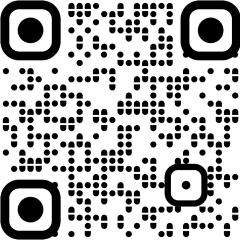Highlights
- Unemployment for recent college graduates has risen to 5.8%, with a notable increase in job displacement due to advancements in artificial intelligence, particularly in technical fields like finance and computer science.
- Many companies are adopting an ‘AI-first’ approach, with some executives reporting a halt in hiring for lower-level positions as artificial intelligence tools can now perform tasks that previously required human employees.
- Dario Amodei, Chief Executive Officer of Anthropic, has predicted that artificial intelligence could eliminate half of all entry-level white-collar jobs within the next five years.
This month, millions of young people will graduate from college and look for work in industries that have little use for their skills, view them as expensive and expendable, and are rapidly phasing out their jobs in favour of artificial intelligence.
That is the troubling conclusion of my conversations over the past several months with economists, corporate executives and young job seekers, many of whom pointed to an emerging crisis for entry-level workers that appears to be fuelled, at least in part, by rapid advances in AI capabilities.
You can see hints of this in the economic data. Unemployment for recent college graduates has jumped to an unusually high 5.8% in recent months, and the Federal Reserve Bank of New York recently warned that the employment situation for these workers had “deteriorated noticeably.” Oxford Economics, a research firm that studies labour markets, found that unemployment for recent graduates was heavily concentrated in technical fields like finance and computer science, where AI has made faster gains.
“There are signs that entry-level positions are being displaced by artificial intelligence at higher rates,” the firm wrote in a recent report.
But I’m convinced that what’s showing up in the economic data is only the tip of the iceberg. In interview after interview, I’m hearing that firms are making rapid progress toward automating entry-level work and that AI companies are racing to build “virtual workers” that can replace junior employees at a fraction of the cost. Corporate attitudes toward automation are changing, too — some firms have encouraged managers to become “AI-first,” testing whether a given task can be done by AI before hiring a human to do it.
One tech executive recently told me his company had stopped hiring anything below an L5 software engineer — a mid-level title typically given to programmers with three to seven years of experience — because lower-level tasks could now be done by AI coding tools. Another told me that his startup now employed a single data scientist to do the kinds of tasks that required a team of 75 people at his previous company.
Anecdotes like these don’t add up to mass joblessness, of course.
Most economists believe there are multiple factors behind the rise in unemployment for college graduates, including a hiring slowdown by big tech companies and broader uncertainty about President Donald Trump’s economic policies.
But among people who pay close attention to what’s happening in AI, alarms are starting to go off.
“This is something I’m hearing about left and right,” said Molly Kinder, a fellow at the Brookings Institution, a public policy think tank, who studies the impact of AI on workers. “Employers are saying, ‘These tools are so good that I no longer need marketing analysts, finance analysts and research assistants.’”
Using AI to automate white-collar jobs has been a dream among executives for years. (I heard them fantasising about it in Davos back in 2019.) But until recently, the technology simply wasn’t good enough. You could use AI to automate some routine back-office tasks — and many companies did — but when it came to the more complex and technical parts of many jobs, AI couldn’t hold a candle to humans.
That is starting to change, especially in fields, such as software engineering, where there are clear markers of success and failure. (Such as: Does the code work or not?) In these fields, AI systems can be trained using a trial-and-error process known as reinforcement learning to perform complex sequences of actions on their own. Eventually, they can become competent at carrying out tasks that would take human workers hours or days to complete.
This approach was on display last week at an event held by Anthropic, the AI company that makes the Claude chatbot. The company claims that its most powerful model, Claude Opus 4, can now code for “several hours” without stopping — a tantalising possibility if you’re a company accustomed to paying six-figure engineer salaries for that kind of productivity.
AI companies are starting with software engineering and other technical fields because that’s where the low-hanging fruit is. (And, perhaps, because that’s where their own labour costs are highest.) But these companies believe the same techniques will soon be used to automate work in dozens of occupations, ranging from consulting to finance to marketing.
Dario Amodei, Anthropic’s CEO, recently predicted that AI could eliminate half of all entry-level white-collar jobs within five years.
That timeline could be wildly off, if firms outside tech adopt AI more slowly than many Silicon Valley companies have, or if it’s harder than expected to automate jobs in more creative and open-ended occupations where training data is scarce.










